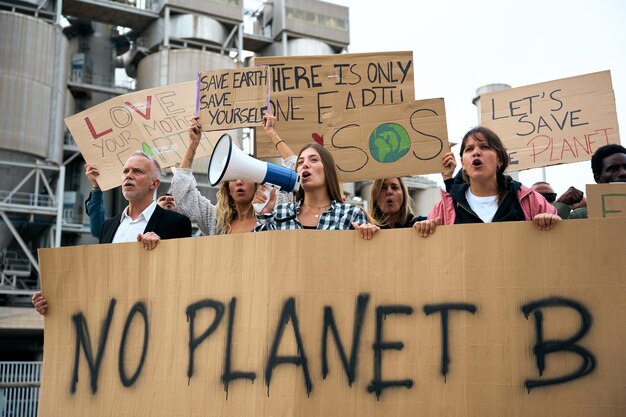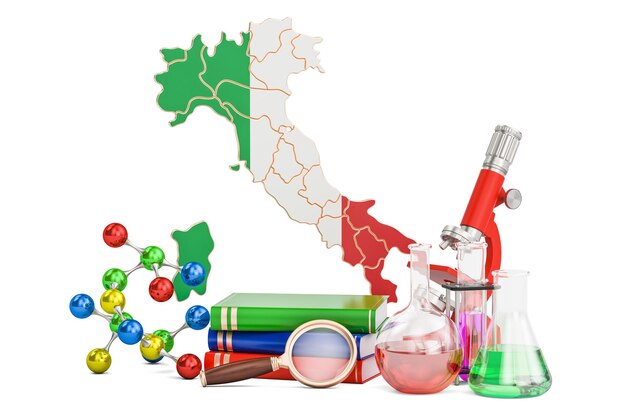Cop 29: Behind the Misleading Commitments – The Dangerous Relations of Petro-States (including with Italy)
The 29th Conference of Parties (Cop 29) to the United Nations Framework Convention on Climate Change (UNFCCC), held in Santiago, Chile, in December 2019, was supposed to be a significant milestone towards achieving the global climate goals. However, behind the misleading commitments made by various countries, particularly those with heavy reliance on fossil fuels known as petro-states, lies a more complex and dangerous reality.
Italy: A Case in Point
Take the case of Italy, one of the largest European economies and a major petro-state. Despite its pledge to reduce greenhouse gas emissions by 30% by 2025 compared to 1990 levels, Italy’s dependency on oil and gas exports remains high. The country is Europe’s third-largest exporter of crude oil, which accounts for around 10% of its total exports. Moreover, it is the second-largest European producer of natural gas after Russia.
The Dangerous Relations
Petro-states‘ relations with other countries and international organizations can pose a significant threat to the global climate efforts. In exchange for their fossil fuel resources, these countries often extract concessions that undermine climate action. Italy is no exception. It has been lobbying against a proposed European Union (EU) carbon border tax, which aims to put a price on carbon emissions for imports from countries without stringent climate policies.
Undermining Global Efforts
Moreover, Italy’s continued reliance on fossil fuels and resistance to climate action can undermine global efforts to limit the global temperature rise below 1.5 degrees Celsius as per the Paris Agreement. The COP 29 outcome failed to deliver the much-needed progress on crucial climate issues such as increasing financial support for developing countries and finalizing rules for carbon markets.
Conclusion
Therefore, it is essential to acknowledge the complex interplay between national interests and global climate action. The case of Italy highlights that while some countries make bold commitments at international forums, their actions on the ground may not align with those commitments. Understanding these contradictions and pressuring petro-states to adhere to their climate pledges is crucial if we are to make significant strides towards a sustainable future.

Introduction:
COP 29: A Pivotal Moment in the Global Fight Against Climate Change
The COP 29, or the 29th Conference of the Parties to the United Nations Framework Convention on Climate Change (UNFCCC), was held in Sonderborg, Denmark, from December 1-13, 2018. This annual meeting is a significant platform for nations to come together and discuss strategies to mitigate the effects of climate change. With each conference building upon the previous one, COP 29 carried great importance as nations were expected to make bold commitments towards reducing greenhouse gas emissions.
The Urgency to Act
The recent summit served as a reminder of the urgent need to act, given the escalating effects of climate change. With each passing day, we witness record-breaking temperatures, melting glaciers, and devastating natural disasters. The consequences of inaction are dire, and it is incumbent upon us to take decisive steps towards a sustainable future.
Nations’ Commitments
At COP 29, nations pledged to take concrete actions to meet their Paris Agreement commitments. The Paris Agreement, signed in 2015, aims to limit global warming to well below 2 degrees Celsius above pre-industrial levels and pursue efforts to limit the temperature increase to 1.5 degrees Celsius. This ambitious target requires collective effort from all nations, and COP 29 was a crucial step towards ensuring that progress is made in the right direction.
Collaboration and Innovation
The COP 29 summit also emphasized the importance of collaboration and innovation in the fight against climate change. Governments, businesses, and civil society organizations were encouraged to work together towards developing and implementing sustainable solutions that reduce greenhouse gas emissions while promoting economic growth and social development. With renewed commitment and collective effort, COP 29 signaled a promising start to the journey towards a more sustainable future for our planet.

Overview of Petro-States and Their Role in COP 29
Petro-states, also known as oil-exporting countries, are nations that derive a significant portion of their Gross Domestic Product (GDP) and government revenue from the exploration, production, and exportation of petroleum. Some of the world’s most prominent petro-states include Russia, Saudi Arabia, Iran, Iraq, Kuwait, and Venezuela. These countries have played a pivotal role in the global energy market due to their vast oil reserves and production capabilities.
Significance of Petro-States in the Global Energy Market
Petro-states have been instrumental in shaping the global energy landscape for decades. They possess a significant amount of influence over international oil prices and production levels. When these countries align their production strategies, they can significantly impact global oil markets. Furthermore, their economies are heavily reliant on the revenue generated from the exportation of petroleum products.
Petro-States’ Interests and COP 29
COP 29, the 29th Conference of the Parties to the United Nations Framework Convention on Climate Change (UNFCCC), aims to accelerate efforts to mitigate climate change and support sustainable development. However, the interests of petro-states may conflict with the goals of COP 29 due to their reliance on fossil fuel exports and revenues. Many petro-states are reluctant to reduce their oil production or shift towards renewable energy sources, which could negatively impact their economies and political stability.
Impact of COP 29 on Petro-States
The negotiations at COP 29 could result in policies and agreements that may impact petro-states’ economies and industries. For instance, the adoption of more ambitious climate targets could decrease global demand for oil, leading to lower prices and reduced revenues for oil-exporting countries. Additionally, increased investment in renewable energy sources may further reduce the competitiveness of fossil fuels in the global energy market.
Petro-States’ Role in COP 29
Despite their potential conflicts of interest, petro-states play a crucial role in the negotiations at COP 29. They bring unique perspectives to the table and can influence the outcomes of the conference, especially regarding the energy transition and climate finance. Additionally, some petro-states are taking steps towards renewable energy development and have expressed their commitment to reducing greenhouse gas emissions.
Conclusion
Petro-states have a significant impact on the global energy market and play a pivotal role in COP 29 negotiations. Their interests may conflict with the goals of the conference due to their reliance on fossil fuel exports and revenues. However, they bring valuable perspectives to the table and can influence the outcomes of COP 29, especially regarding the energy transition and climate finance. It is crucial for all stakeholders to engage in open and constructive dialogue to address these challenges and work towards a sustainable future.

I Italy and Its Relations With Petro-States
Italy, with its rich cultural heritage and economic importance in Europe, plays a significant role as an energy hub in the continent. The country’s strategic location in the Mediterranean basin makes it a key player in the European energy market, with a large portion of its energy coming from fossil fuels, primarily natural gas and oil. Despite Italy’s commitment to the link and its goals to reduce carbon emissions, the country remains heavily dependent on fossil fuels for its energy needs.
Description of Italy’s role as a European energy hub and its dependence on fossil fuels
Italy’s position in the Mediterranean has made it a critical player in Europe’s energy landscape. With its extensive coastline and deep-water ports, Italy serves as a bridge between Europe and the Middle East, North Africa, and Eastern Europe. According to the International Energy Agency (IEA), Italy was the third-largest European importer of natural gas in 2019, accounting for about 15% of the EU’s total gas imports. Moreover, Italy is also a significant producer and exporter of natural gas, making it an essential player in Europe’s energy market. However, the country’s reliance on fossil fuels for over 70% of its total primary energy consumption poses a challenge to its COP 29 commitments.
Analysis of the country’s complex relationships with petro-states, such as Russia and Saudi Arabia
Italy’s energy ties to petro-states, particularly Russia and Saudi Arabia, have been a complex issue for decades. Historically, Italy has been an essential market for both countries’ oil exports. During the Cold War era, Italy was one of the few European nations that maintained diplomatic and economic relations with the Soviet Union. This historical context has shaped Italy’s current energy agreements with Russia, which include natural gas imports through pipelines such as South Stream and Nord Stream The completion of these pipelines could potentially undermine Europe’s efforts to reduce its dependence on Russian energy and decrease carbon emissions.
Regarding Saudi Arabia, Italy has been a long-term partner in the Organization of the Petroleum Exporting Countries (OPEC). The two countries have maintained strong economic and diplomatic relations, with Italy being Saudi Arabia’s second-largest European trading partner. Italy is a significant importer of Saudi crude oil and plays an essential role in the global oil market, as it hosts the largest refinery complex in Europe.
Discussion of the potential geopolitical implications for Europe and its efforts to reduce carbon emissions
The complex relationships between Italy and petro-states, particularly Russia and Saudi Arabia, have significant geopolitical implications for Europe. As the European Union strives to reduce its carbon emissions and decrease its dependence on fossil fuels, Italy’s role as an energy hub and its ties to petro-states pose a challenge. The completion of pipelines like Nord Stream 2 and South Stream could potentially undermine Europe’s energy security and its efforts to shift towards renewable energy sources.
Moreover, Italy’s dependence on fossil fuels for its energy needs conflicts with the EU’s commitment to reducing carbon emissions by at least 55% by 2030. This tension highlights the need for a coordinated approach from European nations towards their energy policies and international relationships with petro-states. Collaborative efforts in researching, investing in, and implementing renewable energy technologies, such as solar, wind, and hydroelectric power, could help Europe reduce its dependence on fossil fuels and mitigate the geopolitical implications of its energy relationships with petro-states.

The Misleading Commitments of Petro-States at COP 29
During the COP 29, also known as the United Nations Climate Change Conference in 2018, several petro-states
made commitments that raised eyebrows among climate activists and experts due to their apparent emptiness or insufficiency.
Some countries, like Saudi Arabia, Russia, and Iraq, pledged to reduce their greenhouse gas emissions, but these promises were often accompanied by conditions or qualifications that significantly weakened their impact.
For instance, Saudi Arabia’s commitment was conditional on the international community agreeing to a fair price for carbon emissions.
Meanwhile, Russia, the world’s fourth-largest greenhouse gas emitter, announced that it would only reduce its emissions if other major emitters did the same. In effect, these countries seemed to be placing their economic interests above their climate obligations.
But why would petro-states, which rely heavily on oil and gas exports, make such commitments in the first place?
One reason is political pressure.
International organizations like the United Nations and civil society groups have been urging countries to take more ambitious climate action, and falling behind could damage a country’s reputation.
Another reason is the potential financial benefits of green technologies and industries, which could help these countries diversify their economies and reduce their reliance on fossil fuels.
However, many argue that these countries’ commitments are not sufficient to address the urgent need for global climate action.
In fact, according to a report by the Climate Action Tracker, none of the commitments made by petro-states at COP 29 were in line with the Paris Agreement’s goal of limiting global warming to well below 2 degrees Celsius.
Conclusion:
The misleading commitments of petro-states at COP 29 highlight the ongoing tension between economic interests and climate obligations. While some countries may see climate action as an opportunity to diversify their economies and reduce their reliance on fossil fuels, others continue to prioritize short-term economic gains over long-term climate sustainability.
As the world moves towards a more sustainable energy future, it will be crucial for all countries to balance their economic and climate priorities in a way that ensures a livable future for generations to come.
The COP 29 summit was a reminder that this balance is not always easy to achieve, but it is a necessary step towards a more sustainable future.

The Consequences of Misleading Commitments for Climate Action
Misleading commitments in the context of climate action can have far-reaching and negative consequences, both for global efforts to mitigate climate change and for the most vulnerable countries, particularly those in the Global South.
Impact on Global Efforts to Mitigate Climate Change and Meet Paris Agreement Targets
The lack of sincere and ambitious commitments from major greenhouse gas emitters can significantly undermine the progress made towards limiting global warming to well below 2°C above pre-industrial levels and pursuing efforts to limit the temperature increase to 1.5°C, as set out in the Paris Agreement. Misleading commitments can lead other countries to question the credibility and commitment of these major emitters, which in turn could result in a lack of trust and cooperation among nations. This could hinder the collective efforts needed to address climate change effectively, particularly in areas such as technology transfer, financing, and capacity building. Moreover, misleading commitments could delay or derail the implementation of necessary policies and actions, further jeopardizing efforts to meet climate targets.
Consequences for the Most Vulnerable Countries in the Global South
The consequences of misleading commitments are especially significant for the most vulnerable countries, which are often the least responsible for the current level of greenhouse gas emissions but are disproportionately affected by climate change. These countries may bear the brunt of the negative impacts, including increased food and water insecurity, loss of livelihoods, and displacement due to extreme weather events, sea-level rise, or other climate impacts. Misleading commitments can lead to a lack of funding and resources for adaptation measures, further exacerbating the vulnerabilities faced by these countries. This not only undermines their ability to build resilience against climate change but also risks exacerbating existing inequalities and perpetuating cycles of poverty and underdevelopment. Therefore, it is essential that all countries make sincere and ambitious commitments to reduce their greenhouse gas emissions, provide financial and technological support to help vulnerable countries adapt to climate change, and work together to create a more equitable and sustainable future for all.

VI. Possible Solutions and Next Steps
Proposed Measures to Address the Issue of Petro-states’ Misleading Commitments:
To mitigate the issue of petro-states making misleading commitments to reduce greenhouse gas emissions, several measures have been proposed. These include:
Increased Transparency:
Transparency is key to ensuring that countries are meeting their commitments. This could involve regular reporting on greenhouse gas emissions and progress towards reducing them. The United Nations Framework Convention on Climate Change (UNFCCC) already requires countries to submit annual inventories of their greenhouse gas emissions, but more needs to be done to ensure that this information is accurate and reliable.
Accountability:
Accountability mechanisms could be put in place to hold countries accountable for their emissions reductions pledges. This could involve penalties for those that fail to meet their targets, or incentives for those that exceed them. The international community could also provide assistance and support to help countries meet their emissions reduction goals.
Cooperation:
Cooperation between nations is essential for addressing climate change effectively. This could involve joint research and development initiatives, technology sharing, and capacity building in developing countries. The Paris Agreement, which was signed by nearly 200 countries in 2015, is a good example of international cooperation on climate change.
Discussion of Alternative Energy Sources and Their Potential to Reduce Dependence on Fossil Fuels:
Another way to address the issue of petro-states’ reliance on fossil fuels and their associated greenhouse gas emissions is to explore alternative energy sources.
Renewable Energy Technologies:
Renewable energy technologies, such as solar, wind, and hydroelectric power, have the potential to significantly reduce dependence on fossil fuels. These sources of energy are renewable, meaning they will never run out, and they produce little or no greenhouse gas emissions during use.
Nuclear Energy:
Nuclear energy is another low-carbon source of electricity that could help reduce dependence on fossil fuels. While it does produce greenhouse gas emissions during the mining and transportation of uranium, the actual production of electricity from nuclear power plants produces little or no carbon dioxide. However, concerns about nuclear waste disposal and safety must be addressed.
Call for Greater International Cooperation and Solidarity to Address Climate Change:
Finally, addressing climate change requires a collective effort from all nations. Developed countries, which have historically contributed the most to greenhouse gas emissions, must take a leading role in reducing their emissions and providing financial and technological support to developing countries. This could involve climate finance mechanisms, such as the Green Climate Fund, which provides grants and concessional financing to help developing countries implement their climate action plans.

V Conclusion
Recap of the main points discussed in the article
This article has explored the complex relationship between petro-states and climate change, highlighting the challenges posed by their reliance on fossil fuels for economic growth and their role as significant greenhouse gas emitters. We have seen how some petro-states, such as Saudi Arabia and Russia, are major contributors to global emissions but face unique obstacles in their transition towards cleaner energy sources. Additionally, we have discussed the importance of international cooperation and the potential for sustainable energy solutions to mitigate climate change.
Emphasis on the importance of holding petro-states accountable for their commitments to reduce emissions and transition towards cleaner energy sources
It is crucial that we hold petro-states accountable for their commitments to reduce emissions and shift towards renewable energy. These nations possess vast resources and considerable influence in the global economy, making them key players in the fight against climate change. Yet, despite their potential to lead the way towards a sustainable future, many petro-states continue to prioritize short-term economic gains over long-term environmental considerations.
Call for continued international dialogue and action on climate change, with a focus on cooperation between nations and the promotion of sustainable energy solutions
As we move forward, it is essential that we maintain an open and productive dialogue between nations on the issue of climate change. Cooperation among petro-states, developed countries, and emerging economies is vital in addressing this global challenge collectively. By promoting sustainable energy solutions, investing in renewable technologies, and working together to reduce emissions, we can create a brighter future for generations to come.
Towards a Sustainable Energy Future
In conclusion, the relationship between petro-states and climate change is a complex one, filled with challenges and opportunities. While some may see these nations as obstacles to progress, others view them as potential leaders in the transition towards a sustainable energy future. Ultimately, the key lies in holding petro-states accountable for their commitments and working together to find solutions that benefit both the environment and the global economy.
United We Stand
Through continued international dialogue and action, we can create a more just and sustainable future for all. Let us come together as one global community to address the challenges of climate change and pave the way towards a cleaner, greener world.



